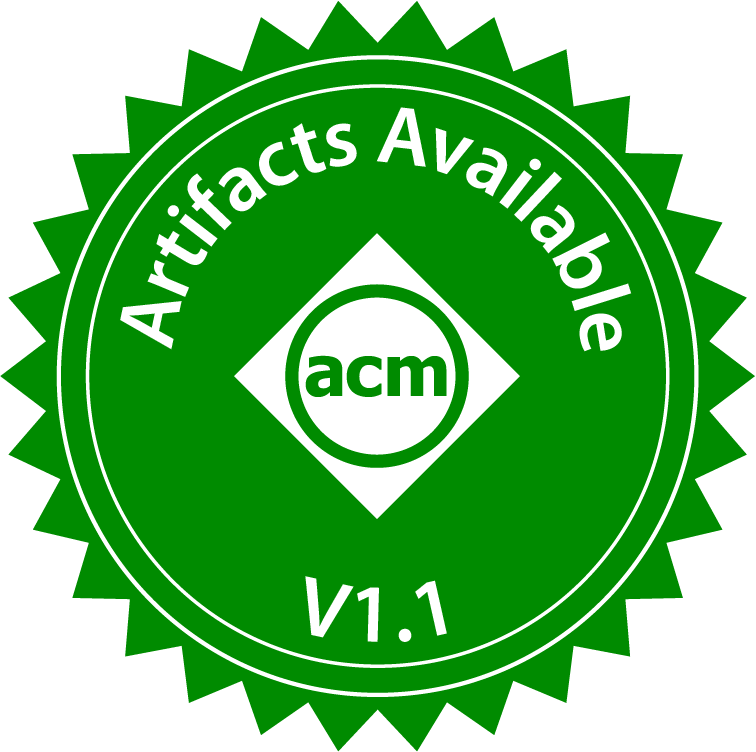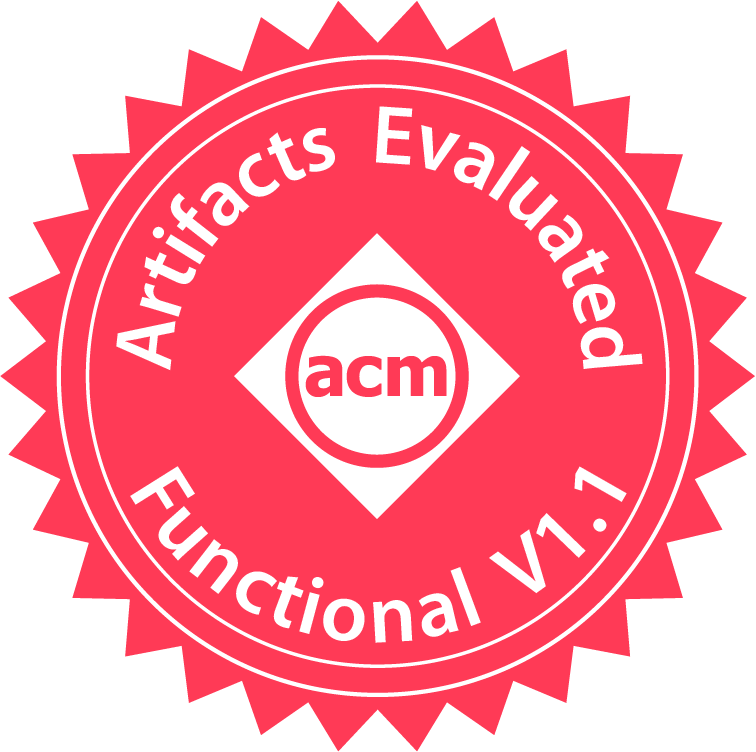Mix Testing. Specifying and Testing ABI Compatibility of C/C++ Atomics Implementations @ OOPSLA 2024
[pre-print], [video], [BibTeX], [Arm ABI spec], [Artifact] 
 , [Easter egg],
, [Easter egg],
I presented a paper at the ACM SIGPLAN International Conference on Systems, Programming, Languages and Applications: Software for Humanity (SPLASH), specifically OOPSLA 2024 titled Mix Testing: Specifying and Testing ABI Compatibility of C/C++ Atomics Implementations.
The pre-print is here.
My co-author John Wickerson kindly wrote a blog introducing the project.
The paper is also on ArXiv.
The talk recording can be found here.
The artifact is available on Zenodo. It was awarded the available and functional badges.


The Arm Atomics Application Binary Interface was released as an official specification in the Q3 release of the Arm ABI. The pdf can be found here, and can also be rendered on GitHub using the restructed text format here.
BibTeX:
Abstract is:
The correctness of complex software depends on the correctness of both the source code and the compilers that generate corresponding binary code. Compilers must do more than preserve the semantics of a single source file: they must ensure that generated binaries can be composed with other binaries to form a final executable. The compatibility of composition is ensured using an Application Binary Interface (ABI), which specifies details of calling conventions, exception handling, and so on. Unfortunately, there are no official ABIs for concurrent programs, so different atomics mappings, although correct in isolation, may induce bugs when composed. Indeed, today, mixing binaries generated by different compilers can lead to an erroneous resulting binary.
We present mix testing: a new technique designed to find compiler bugs when the instructions of a C/C++ test are separately compiled for multiple compatible architectures and then mixed together. We define a class of compiler bugs, coined mixing bugs, that arise when parts of a program are compiled separately using different mappings from C/C++ atomic operations to assembly sequences. To demonstrate the generality of mix testing, we have designed and implemented a tool, atomic-mixer, which we have used: (a) to reproduce one existing non-mixing bug that state-of-the-art concurrency testing tools are limited to being able to find (showing that atomic-mixer at least meets the capabilities of these tools), and (b) to find four previously-unknown mixing bugs in LLVM and GCC, and one prospective mixing bug in mappings proposed for the Java Virtual Machine. Lastly, we have worked with engineers at Arm to specify, for the first time, an atomics ABI for Armv8, and have used atomic-mixer to validate the LLVM and GCC compilers against it.
The People involved are:
- Luke Geeson, UCL
- James Broterston, UCL
- Wilco Dijkstra, Arm Ltd
- Alastair F. Donaldson, Imperial College London
- Lee Smith, Arm Ltd. (retired 2022)
- Tyler Sorensen, University California at Santa Cruz,
- John Wickerson, Imperial College London
Feel free to email me if you have any questions using [email protected]